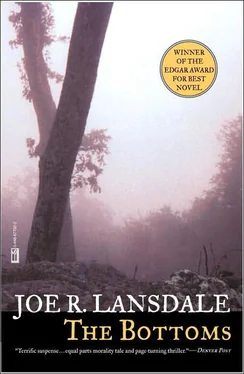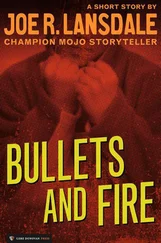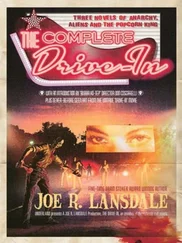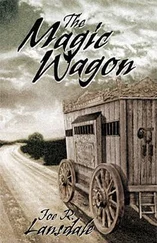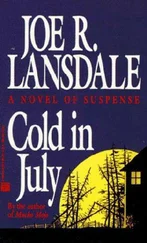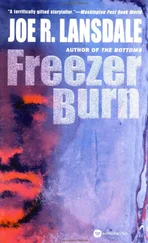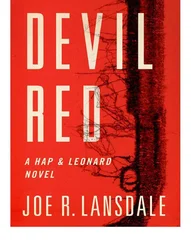Joe Lansdale - The Bottoms
Здесь есть возможность читать онлайн «Joe Lansdale - The Bottoms» весь текст электронной книги совершенно бесплатно (целиком полную версию без сокращений). В некоторых случаях можно слушать аудио, скачать через торрент в формате fb2 и присутствует краткое содержание. Жанр: Триллер, на английском языке. Описание произведения, (предисловие) а так же отзывы посетителей доступны на портале библиотеки ЛибКат.
- Название:The Bottoms
- Автор:
- Жанр:
- Год:неизвестен
- ISBN:нет данных
- Рейтинг книги:3 / 5. Голосов: 1
-
Избранное:Добавить в избранное
- Отзывы:
-
Ваша оценка:
- 60
- 1
- 2
- 3
- 4
- 5
The Bottoms: краткое содержание, описание и аннотация
Предлагаем к чтению аннотацию, описание, краткое содержание или предисловие (зависит от того, что написал сам автор книги «The Bottoms»). Если вы не нашли необходимую информацию о книге — напишите в комментариях, мы постараемся отыскать её.
The Bottoms — читать онлайн бесплатно полную книгу (весь текст) целиком
Ниже представлен текст книги, разбитый по страницам. Система сохранения места последней прочитанной страницы, позволяет с удобством читать онлайн бесплатно книгу «The Bottoms», без необходимости каждый раз заново искать на чём Вы остановились. Поставьте закладку, и сможете в любой момент перейти на страницу, на которой закончили чтение.
Интервал:
Закладка:
Pappy ran a pretty good store. There was most everything you needed from food items to soda pops to furniture to cloth for clothes and curtains, hardware items, candles, soaps, hair oils, coal oil, and gasoline. I loved going in there to look and smell the smells.
Pappy Treesome was behind the counter drinking a Co’-Cola and eating on a rough-cut slab of bologna when we came in. When he saw Daddy he grinned. Minus teeth and with a mouthful of bologna, it wasn’t a pretty picture. I’d seen better-looking mouths with hooks in them.
Daddy had known Pappy all his life, even before he married the Negress. Camilla was her name. She was a big plump woman who did wash work for a white family not far from Pearl Creek. She also did midwifing and once whipped two colored men with her fists on account of they had been picking on Root, talking him into exposing himself. It was said they only wanted to see the amazing instrument after which he was named, but it made no difference, Camilla didn’t take kindly to it.
Pappy scared me a little. He was scarecrow lean with a shock of white hair that stood up like porcupine quills. Once in a while he wore store-bought teeth, but they clicked and clacked and slid around when he talked, as if they might have some place to go and were anxious to get there. Therefore, he mostly went toothless.
Another thing was the way he moved. He lunged and jerked about, as if invisible strings were tied to him and he were being pulled at random in two or three directions. Looking back, I suppose he had some kind of neurological or muscle ailment, but at the time he was said to have the jitters.
There were a few cane chairs thrown around a potbelly stove made from an oil drum, and after Daddy bought us Co’-Colas and popped the bottle tops with an opener, we sat there, drank, and relaxed a moment. The stove wasn’t lit that time of year, but the log door was open and I could see ashes and bits of paper and peanut hulls customers had tossed inside. The commissary, even without the lit stove, was hot and oppressive with the tin roof gathering in and holding the heat like an oven.
If you didn’t move too fast, got down low in your chair, and sucked slowly at your pop, it was almost pleasant.
Pappy came over. I said a polite hello, then tried not to look at him while I drank my Co’-Cola.
“Dey zay ooo god u ded gul in duh eyezouse, cozdabull,” Pappy said, flapping his lips all over the place.
“That’s right,” Daddy said. He amazed me with his ability to understand Pappy Treesome. “It wasn’t supposed to be common knowledge, but I guess that’s too much to expect.”
“Ron ere dis,” Pappy said, and went over to wait on a fat colored woman in a dress made of hand-dyed flour sacks wearing a cardboard hat with colorful paper flowers on the crown.
We drank our Co’-Colas, and Daddy walked around a bit, looking at the furniture we couldn’t afford, then he asked Pappy if we could buy some gas.
Pappy took us out back to a pump in a shed, unlocked the pump with a key, worked the handle, and filled a large tin tote can. Daddy poured the gas in the car, told me to take the can back to Pappy.
When I came back, Daddy was sitting behind the wheel, woolgathering. I realized then that he had been dragging his heels, looking at this and that in the store, getting gas when we may not have really needed it, just plain old stalling, not wanting to do what it was he was about to do.
Daddy sighed, started up the Ford, drove on around the little mud-rutted square, dotted here and there by buildings on stilts, or piles as they were sometimes called. This was, of course, designed to keep out the water when the creek rose. Mostly the buildings were homes and had gardens or hog pens out beside them, but there was a office that said PEARL CREEK STANDARD on it, and a lawyer shingle and a sign that said DENTIST. There was also a barbershop with a red and white pole out front.
Although the sawmill was full of working men, many of them with no more than three fingers, some missing hands, there were plenty didn’t have work, and they were milling about or sitting on porch steps or in chairs. Most were gathered at the colored barbershop, like crows on a fence. They dressed in overalls and straw or felt hats, worn-out work shoes with laughing soles.
Old black women, some in dresses, some in overalls and hats like the men, were also visible. Kids ran about splashing mud, falling and sliding, screaming off toward the creek.
We stopped at a whitewashed house with a well-tended flower bed on one side, a little patch of garden fenced in with chicken wire on the other. In the garden were a dozen or so staked tomatoes, a few stalks of corn, a row of beans, a couple rows of peas, and four big white pattie squash that deserved flouring and frying. Four banty hens and a rooster were scratching about in the dirt near the garden, and a yellow dog, that looked as if it had just completed some kind of race, lay on its side panting from the heat.
As we got out of the car the dog moved its tail a few times, then stopped, lest it wear itself out with enthusiasm. The chickens scattered, and when we were on the porch, they converged again on the spot they had just abandoned, pecking away at nothing I could see, besides dirt.
On a hill barren of trees I could see and hear the sawmill grinding away as the mules worked the saws and the saws gnawed logs into lumber. Sawdust flowed down the hill and into the creek. The dust closest to the mill was butternut-colored, the older stuff, black and sludgy with age; it slid into the creek where it heaped up and was washed slowly away by the water.
Daddy took off his hat, knocked on the door and a moment later it opened. A plump colored lady in a tight-fitting blue dress stood looking out.
“I’m Constable Collins. Your husband is expecting me.”
“Yes suh, he is. Come on in.”
Inside, the house smelled pleasantly of pinto beans cooking. It was neat with simple furniture, some of it store-bought, most of it handmade from rough lumber and apple crates. There was a shelf of books on the wall. The most books I had ever seen collected together at one time, and perhaps the most I had seen in my life. Some were fiction, but most were books on philosophy and psychology. I didn’t know that at the time, but many of the titles stayed with me, and years later I realized what they were.
The wood slat floor looked to have been freshly scrubbed and smelled faintly of oil. There was a painting on the wall. It was of a blue vase of yellow flowers sitting on a table near a window that showed the moon hung in the sky next to a dark cloud.
The house looked a lot nicer than our place. I guessed doctoring, even for a colored doctor, wasn’t such a bad way to make a living.
“Jes ’scuse me for a moment so I can see I can find him,” the lady said, and went away.
Daddy was looking the place over too, and I saw something move in his throat, a sadness cross over his face, then the lady came back and said: “Doctor Tinn’s out back. He’s waitin’ on you, Constable. This yo boy?”
Daddy said I was.
“Ain’t he just the best-lookin’ little snapper. How’re you, Little Man?”
That was the same thing Miss Maggie called me, Little Man. “Fine, ma’am.”
“Oh, and he’s got such good manners. Come on back, will y’all?”
She led us through the back door and down some steps. There was a clean white building out back of the house, and we went inside. We stood in a stark white room with a large desk and smelled some kind of pine oil disinfectant. There was a maple wood chair behind it with a suit coat draped over it. There were some wooden file cabinets, another shelf of books, this one half the size of the one in the house, and a row of sturdy chairs. There was a painting similar to the one in the house on the wall. It was of a riverbank, rich with dark soil and shadowed by trees, and between the trees a long thin shadow over the river.
Читать дальшеИнтервал:
Закладка:
Похожие книги на «The Bottoms»
Представляем Вашему вниманию похожие книги на «The Bottoms» списком для выбора. Мы отобрали схожую по названию и смыслу литературу в надежде предоставить читателям больше вариантов отыскать новые, интересные, ещё непрочитанные произведения.
Обсуждение, отзывы о книге «The Bottoms» и просто собственные мнения читателей. Оставьте ваши комментарии, напишите, что Вы думаете о произведении, его смысле или главных героях. Укажите что конкретно понравилось, а что нет, и почему Вы так считаете.
